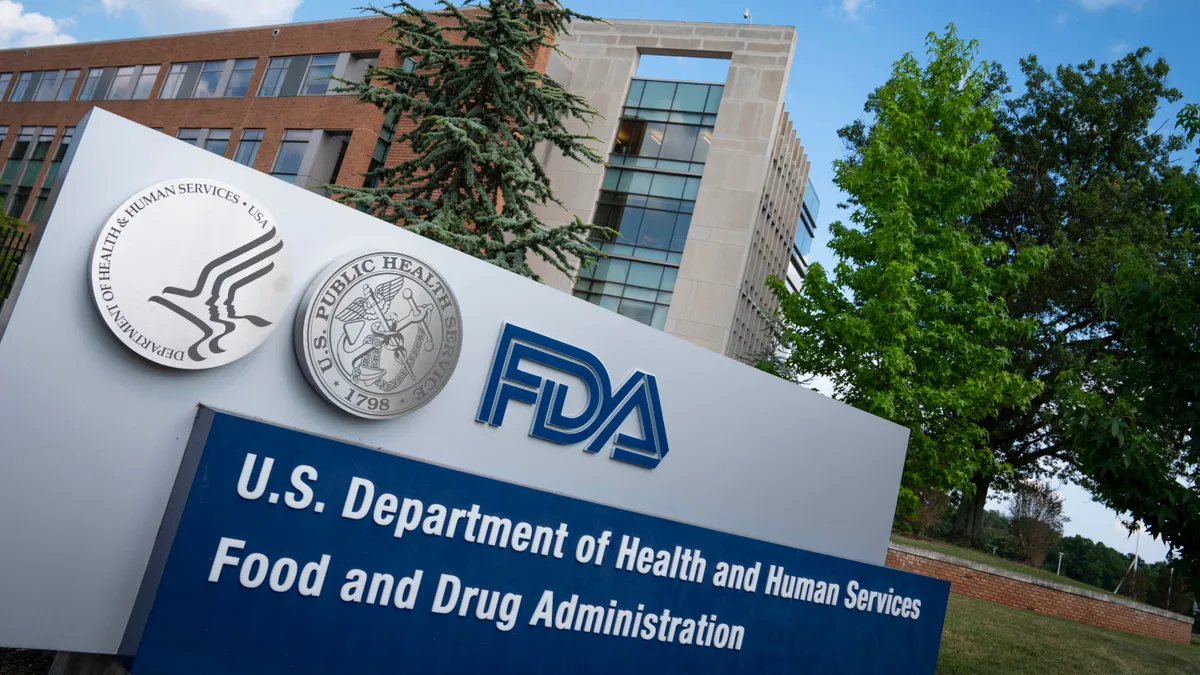Dive Brief:
- FDA has updated its recommendations for the use of Endologix AFX2 endovascular grafts after hearing from experts on an advisory committee.
- The updated recommendations call for healthcare providers to be aware that "the majority of available data" link earlier AFX endovascular graft versions to more health risks compared to similar treatments for abdominal aortic aneurysms (AAA).
- FDA is asking healthcare providers to consider alternatives to AFX2 for AAA patients undergoing endovascular graft treatment. Cook Medical and Medtronic are among the companies that could benefit if physicians are deterred from using AFX2.
Dive Insight:
FDA made the recommendation after the majority of panelists on an advisory committee said the risks of routine use of AFX2 in the treatment of AAA outweigh the benefits despite Endologix's work to address problems with earlier iterations of the device.
The FDA recommendations are in line with the conclusions of the panel, which said the agency should keep AFX2 on the market but ask physicians to take certain actions before using the device.
The agency has responded to the advice by recommending that physicians discuss the risks and benefits of all available AAA treatment options with patients prior to surgery. Earlier versions of AFX are associated with a higher risk of Type III endoleaks and late AAA-related serious adverse events than rival devices.
At this stage in the product lifecycle, it is unclear if AFX has the same problems as its predecessors. FDA found endoleak complaints increased "substantially" six years after the implantation of an older version of AFX. The latest device, AFX2, has a different graft material manufacturing method, graft material thickness and delivery system but it has not been on the market long enough to tell if it suffers from the same long-term problems.
Faced with that uncertainty, FDA has opted against removing the device from the market, which was one of the options considered, but has tried to minimize the harm caused in the event AFX2 does have a higher risk of endoleaks than rival devices.
FDA is asking healthcare providers to remain alert for more updates on AFX2 and is working with Endologix to add information about safety and patient selection to the product label.
Other recommendations are unchanged. FDA is continuing to advise healthcare providers to closely monitor patients treated with any AFX device, specifically through lifelong imaging follow-up at least once a year.










